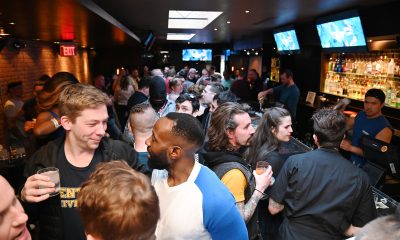Local
A later last call
D.C. gay clubs ponder mayor’s proposal to extend bar hours
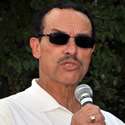
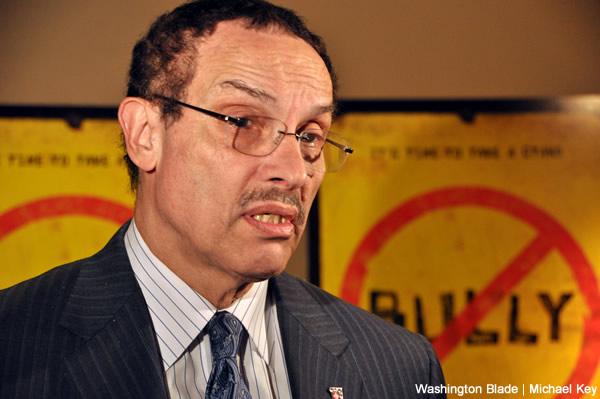
D.C. Mayor Vincent Gray has proposed allowing nightlife venues to extend the time they may serve alcoholic beverages from 2 a.m. to 3 a.m. during the week and from 3 a.m. to 4 a.m. on weekends. (Washington Blade photo by Michael Key)
Customers and owners of the city’s gay bars and nightclubs have joined other city residents in discussing a proposal by Mayor Vincent Gray to allow establishments serving liquor to stay open one hour later each night of the week.
Gray surprised many of the city’s civic activists and Advisory Neighborhood Commission members by attaching the proposal to his fiscal year 2013 budget rather than making it a freestanding bill.
The proposal would allow bars, nightclubs, restaurants and hotels to extend the time they may serve alcoholic beverages from 2 a.m. to 3 a.m. during the week and from 3 a.m. to 4 a.m. on weekends.
“I think there are probably some who like it and some who don’t,” Gray told the Blade last week at a budget briefing he held in Ward 5. “A lot of people who like nightlife are very supportive of it. There are people who say let’s make this a kind of city that has a global and international feel.”
According to Gray and the city’s chief financial officer, Natwar M. Gandhi, the proposal would yield a projected additional sales and excise tax revenue of $3.21 million for fiscal year 2013 and $12.84 million over a four-year period. Gray said the additional revenue would come at a time when the city faces a possible budget shortfall that could result in cuts to important social services programs.
The proposal must be approved by the 13-member D.C. City Council, which is expected to take up the matter later this month or early next month as part of its consideration of the city budget.
Gay D.C. Council member Jim Graham (D-Ward 1), who chairs a Council committee that oversees the Alcoholic Beverage Regulation Administration (ABRA), has come out against the proposal. At a committee hearing Tuesday night, Graham said he agrees with concerns raised by civic groups and a number of ANC commissioners that allowing bars and clubs to remain open another hour would have a harmful impact on many neighborhoods throughout the city.
Opponents testified at the hearing that bars and nightclubs in certain parts of the city, especially in Adams Morgan and Georgetown, would result in noise, heavy traffic congestion, and sometimes disturbances and crime in those neighborhoods. Extending by one hour the closing time for such businesses would only prolong the noise and other problems associated with such businesses, several ANC commissioners said.
Among other concerns, Graham said the city’s public transportation system, especially Metro rail service, would not be operating at the time bars close. Thousands of people who consume alcohol and many who are intoxicated might seek to drive home, putting the public in jeopardy, Graham said.
A clear majority of the more than 40 witnesses that testified before Graham’s Committee on Human Services Tuesday night expressed opposition to the proposal. Most of those opposing the proposal were members of neighborhood civic groups and ANC members.
Gay D.C. Council member David Catania (I-At-Large) has yet to take a position on the mayor’s proposal, according to spokesperson Brendan Williams-Kief, who said Catania is assessing the potential impact of extending bar closing hours.
The D.C. Nightlife Association, whose members include many bars and restaurants, including gay bars, strongly supports the proposal, saying it would boost the city’s economy by strengthening a nightlife industry that accounts for a large number of jobs in the city.
Nightlife Association Executive Director Skip Coburn testified that extending the hours of bar closing times would decrease the problems cited by opponents by staggering the times customers leave and ending the current situation where thousands leave the clubs at the current 3 a.m. closing time on weekends.
Gay nightlife advocate Mark Lee, who also testified before the committee, told the Blade that he and others supportive of the proposals don’t believe civic activists and ANC commissioners always represent the sentiment of a majority of the residents in their districts.
“Those testifying in opposition are the traditional opponents to alcohol licensing regulatory reform and are the relatively few individuals and representatives of small civic groups and ANCs who protest liquor licensing applications and battle to impose so-called ‘voluntary agreements’ and operating restrictions on establishments,” Lee said.
“I, for one, did not find the level of participation by opponents at the hearings to be that significant, as they represented only portions of the city, including only a few areas of the city with prominent dining and entertainment districts,” said Lee, who writes a Blade column on city business issues.
Similar to Coburn, Lee said extending closing hours would create a “calming effect” in high-density entertainment areas.
Other nightlife advocates testifying said not all bars and clubs would choose to stay open until 3 a.m. during the week or 4 a.m. on weekends.
Lee, similar other nightlife advocates, urged the Council not to restrict the extended closing hours to certain parts of the city, such as the downtown business district, as some have suggested.
“Not only will doing so impose a distinct competitive disadvantage to businesses outside a targeted zone, but the benefits of naturally staged patron departures will be eliminated by artificially limiting eligibility,” he said.
Ed Bailey, part owner of the D.C. gay nightclub Town and the gay bar Number 9, said he was especially concerned about allowing the extended hours in some locations but not others.
“That would be an unfair advantage to our competitors,” he said.
Bailey said Town, located at Florida Avenue and 8th Street, N.W., already has permission under the terms of its liquor license to stay open until 5 a.m. on weekends as long as alcohol service stops at 3 a.m. He said the club usually stays open until 3:30 or 4 depending on how late customers decide to stay. But he said the extended hours prevent problems faced by other clubs where large numbers of people leave at the same time.
He said Town has yet to take an official position on the mayor’s proposal.
“We want to provide the best possible event for our patron,” he said. “But we also realize we need to respect our neighbors. We want to make sure we don’t step over any boundaries that are inappropriate for the neighborhood.”
An informal survey by the Blade found that most gay bars in the city favor the mayor’s proposal to extend the closing hours, with a number of them saying they may only choose to remain open an additional hour on certain occasions.
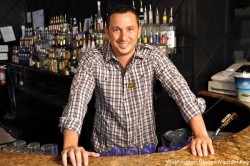
Mark Rutstein, general manager of Cobalt, said Cobalt and JR.’s support the mayor’s proposal to extend the time nightlife venues may serve alcohol. (Washington Blade photo by Michael Key)
“It would come in handy when we need it,” said Greg Zehnacker, owner of the gay bar Green Lantern near 13th and L streets, N.W. “We would do it at times like Gay Pride week.”
Mark Rutstein, general manager of Cobalt, a gay bar on the 17th Street, N.W. entertainment strip near Dupont Circle, said Cobalt and nearby gay bar JR.’s, which are owned by the same company, support the mayor’s proposal. But he said he and other bar and club owners in the popular 17th Street neighborhood are concerned that existing voluntary agreements with the Dupont Circle ANC could lead to serious financial hardship for those clubs.
Rutstein and other club representatives noted that city officials have said ANC voluntary agreements, which are ratified by the city’s Alcoholic Beverage Control Board, would take precedent over the mayor’s proposal for extending bar hours if the ANC agreements call for closing at an earlier hour.
If competing bars and clubs in other parts of the city are not bound by earlier closing hours imposed by ANCs, those establishments could likely draw away customers from the clubs that must close earlier, Rutstein said.
Jerry Griswell, manager of the Dupont Circle gay bar Fireplace, was the only gay bar representative reached who expressed opposition to the mayor’s proposal.
“I don’t like the idea of people drinking another hour at night,” Griswell said. “I don’t think our employees would want to spend another hour at work. I don’t support it.”
District of Columbia
D.C. police seek help in identifying suspect in anti-gay threats case
Victim threatened with assault, called ‘faggot’ as he left Capitals game
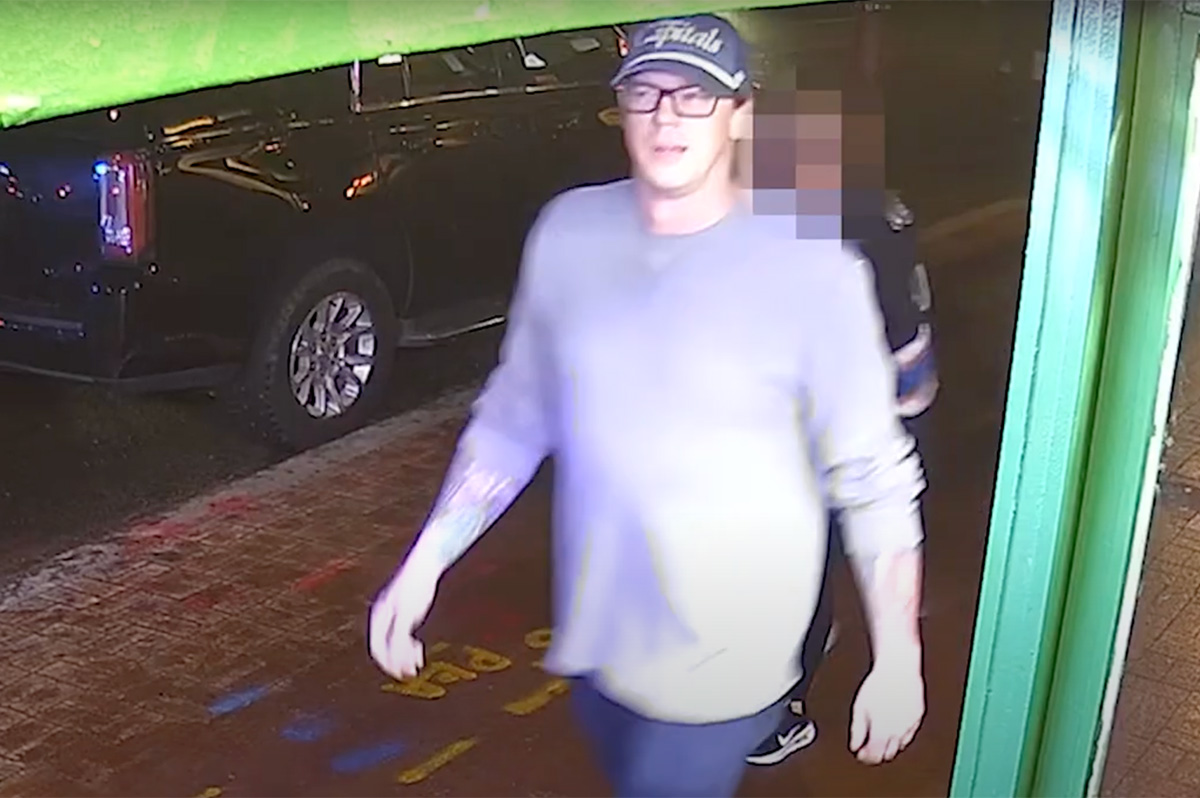
D.C. police are seeking help from the public in identifying a male suspect whose image was captured by a video surveillance camera after he allegedly shouted anti-gay slurs and threatened to assault a man at 6th and H Streets, N.W. on March 20 at about 9:54 p.m.
A police report says the victim told police the incident took place shortly after he exited the nearby Capital One Arena where he had attended a Washington Capitals hockey game.
The police report says the incident began when the victim saw the suspect yell a racist slur at a person behind the victim and started to berate a valet operator.
“Suspect 1 then turned his attention to Victim 1 and called him a ‘faggot’ among other homophobic slurs,” the report says. It says the victim then used his phone to record the suspect, prompting the suspect to walk away before returning and “snatching” the phone from the victim’s hand.
“Suspect 1 walked several feet as Victim 1 followed, requesting his phone back,” the report continues. “Suspect 1 stopped and turned to Victim 1 and while yelling other obscenities exclaimed ‘if you keep recording, I’m going to kick your ass.’” The report concludes by saying the victim was able to recover his phone.
It lists the incident as a “Threats To Do Bodily Harm” offense that is a suspected hate crime.
“Anyone who can identify this suspect or has knowledge of this incident should take no action but call police at 202-727-9099, or text your tip to the Department’s TEXT TIP LINE at 50411,” according to a separate police statement released April 23.
The statement says police currently offer an award of up to $1,000 to anyone who can provide information that leads to an arrest and indictment of the person or persons responsible for a crime committed in D.C.
D.C. police spokesperson Tom Lynch said the case has been under investigation since the incident occurred on March 20. He said the video image of the suspect, most likely obtained from a security camera from a nearby business, was released to the public as soon as it was obtained and processed through the investigation.
District of Columbia
Wanda Alston Foundation names new executive director
Longtime LGBTQ rights advocate Cesar Toledo to succeed June Crenshaw
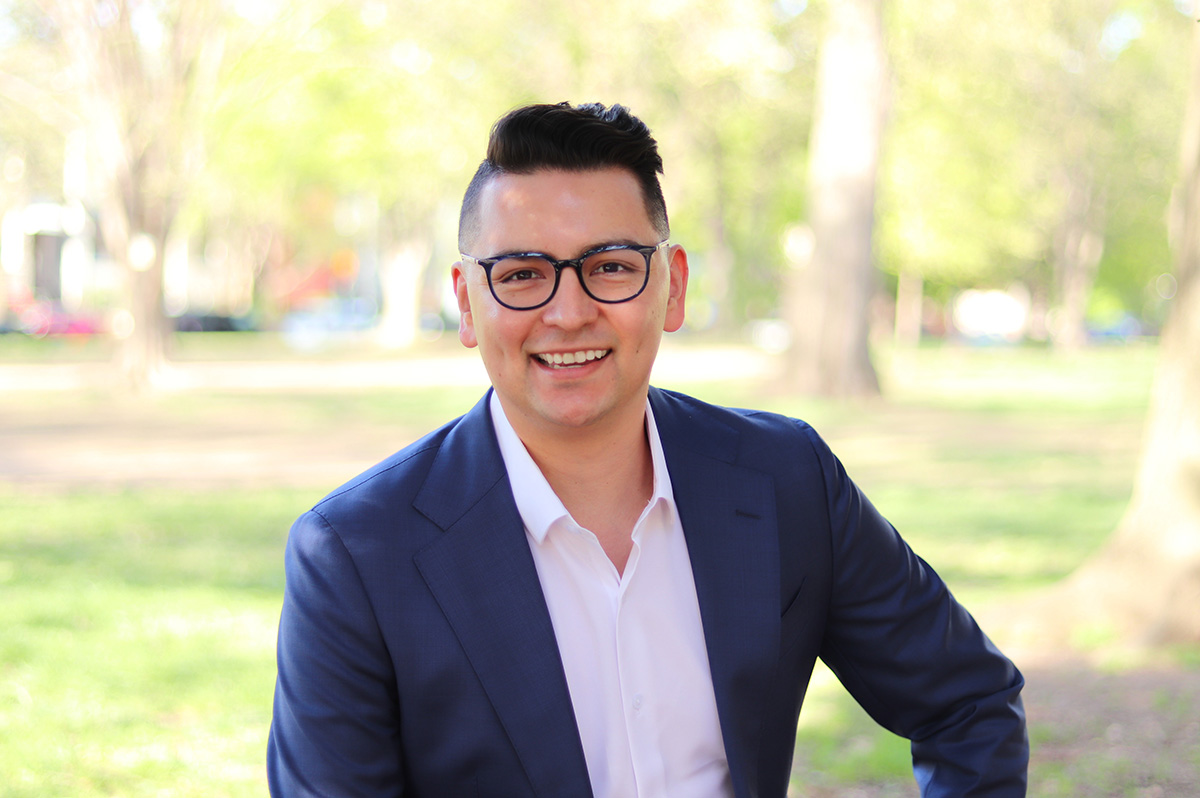
The Wanda Alston Foundation, the D.C.-based organization that has provided housing and support services for homeless LGBTQ youth since its founding in 2008, announced it has appointed longtime LGBTQ rights advocate Cesar Toledo as its new executive director.
In an April 22 statement, the organization said that as part of a planned leadership transition launched in November 2024, Toledo will succeed June Crenshaw, who Alston Foundation officials and LGBTQ community activists say has led the organization with distinction in her role as executive director for the past nine years.
In a statement released last November, the foundation announced Crenshaw was stepping down from her role as executive director after deciding to “to step into her next chapter.”
“June’s leadership has been truly transformative,” said Alston Foundation Board Chair Darrin Glymph in the group’s April 22 statement. “We are immensely grateful for her dedication and equally excited for the energy and experience that Cesar brings to lead us into this next chapter,” Glymph said.
“A seasoned LGBTQ+ advocate, Cesar brings over a decade of experience leading national campaigns, shaping public policy, and building inclusive communities,” the statement released by the group says. “Most recently, he served as the National LGBTQ+ Engagement Director for the Harris for President Campaign and has built a career focused on advancing equality and equitable education,” it says.
Biographical information about Toledo shows that immediately prior to working for the Harris For President Campaign, he served since April 2023 as deputy director for Democrats for Education Reform DC (DFER DC), a political group that helps to elect candidates for public office committed to quality education for all students, including minorities, people of color and LGBTQ youth.
Before joining DFER DC, Toledo served as political director for the LGBTQ+ Victory Fund, where he assisted in electing out LGBTQ candidates to all levels of public office across the U.S.
“I’m really excited about joining the Wanda Alston Foundation,” Toledo told the Washington Blade. “After a decade of working at the intersection of politics and policy and advancing political candidates and equitable education here in D.C., I wanted to shift my career to direct services to the most vulnerable folks in the LGBTQ+ family and our homeless youth,” he said.
Among other things, he said he would push for increasing the Alston Foundation’s visibility and mainlining its services for LGBTQ youth at a time when the national political climate has become less supportive.
A statement on its website says the Alston Foundation was founded in 2008 “in memory of Wanda Alston, a fierce LGBTQ+ activist, national advocate, and government official who was admired by District residents.”
The statement adds, “The foundation opened the first housing program in the nation’s capital in 2008 providing pre-independent transitional living and life-saving support services to LGBTQ+ youth.”
In a separate statement, the Alston Foundation announced it would hold a “thank you” celebration of appreciation for June Crenshaw from 6-8 p.m. on May 20 at Crush Dance Bar located at 2007 14th Street, N.W. in D.C.
“Let’s come together to celebrate her dedication and commitment for everything she has done for the LGBTQIA homeless youth population,” the statement says.
Virginia
Gay talk show host wins GOP nom for Va. lieutenant guv
John Reid becomes first out gay nominee for statewide office in state
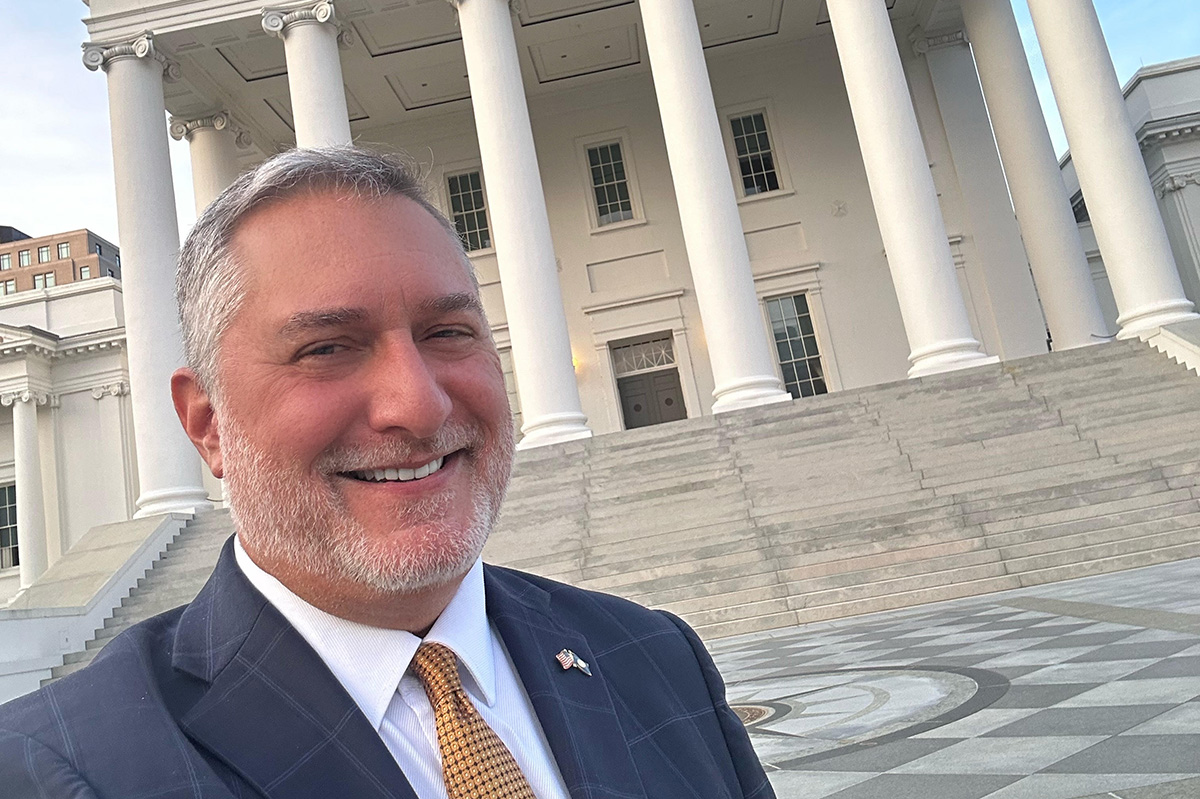
John Reid, a conservative gay radio talk show host in Richmond for many years, this week secured the Republican nomination for the office of lieutenant governor in Virginia, becoming the first known openly gay person to be nominated for a statewide office in that state.
Reid secured the nomination after his only rival in the Republican primary, Fairfax County Supervisor Pat Herrity, dropped out of the race this week for health reasons.
Herrity’s decision to withdraw from the race finalized the GOP nominees for Virginia’s three statewide contests in the November general election in what political observers are calling an unusually diverse GOP slate.
Current Virginia Lt. Gov. Winsome Earle-Sears, a Black woman, captured the GOP nomination for governor without a GOP opponent. Jason S. Miyares, a Hispanic man, is running for re-election as Virginia attorney general without a GOP rival. And Reid, a gay man, is the GOP nominee for lieutenant governor.
Reid will face one of six Democratic candidates for lieutenant governor who are competing in the June 17 Democratic primary.
The Blade spoke with Reid on Tuesday. Below is a partial transcript of that interview.
Blade: Is there a message you have for LGBTQ voters in Virginia, including Democrats, for why you think they should vote for you?
Reid: Well, the thing that I would say to gay voters who are looking and examining the candidates, is that I was out of the closet as a gay Republican publicly in very difficult rooms where people weren’t accepting of gay men – long before Donald Trump said I don’t care about this stuff.
And long before polite society said this was OK. So, in the ‘90s I came out on television and said on Oct. 11 – it was on National Coming Out Day. It was probably in 1996 or 1997. I started at the TV station in 1994. So, it was a couple of years into it.
I came out and said you never know your news anchor could be gay on National Coming Out Day. And everyone was appalled. How can you say this? You’re not supposed to say something like that. So even though I’m a Republican I know some people in the LGBT community are reflexively hostile to Republicans.
I took that step in public, and I think I helped change a lot of minds within the Republican Party and within central Virginia, which continues to be a pretty conservative place by being true to who I am. I spoke out in meetings around Republican staff and legislators and said I think we are not doing the right thing by being hostile to gay marriage.
We talk about the importance of family – Republicans talk about the importance of family, the importance of marriage as a fundamental building block of society. And a gay marriage is a net positive. Is it biblical to people who are following traditional Christian theology? No. But is it good for our society to have people in committed relationships? I think yes.
When we were going through the debate over gays in the military I said I see no reason that someone who is qualified to be in the military and can meet every single standard that everyone else is asked to meet, why should they not be in the Naval Academy, the Air Force Academy, West Point? Or serving as a grunt in active duty. Why would we exclude those people?
And those were very unpopular positions within the Republican Party.
Blade: Your campaign website says you have supported civil unions for same-sex couples. I could have missed seeing it, but I didn’t see an expression of support for gay marriage. Are you saying now that you support full same-sex marriage?
Reid: You know, you’re right. There is a distinction. And I think marriage is completely legitimate. Civil unions – if you want to go and sign paperwork at the courthouse – that’s great. If you want to be married and if a church wants to marry you if you find a church and religious leader and group that wants to bless that – that’s what I hope to do with my partner now.
Sometime in the near future I hope we will be married. And it’s very important to me as a Christian to be married in a church. So, that’s interesting. Most people would not draw that distinction. I appreciate that you’re drawing a distinction. I’m supportive of both.
Blade: Did you say you worked for a member of Congress? Can you say who that was?
Reid: George Allen, the senator from Virginia. And, of course, you and I – I know you’ve covered so many stories like this that you’ve brought together. But it was a very difficult position. When I started with Sen. Allen, he had a very libertarian attitude about this. The [Virginia State] constitutional amendment was not necessary. There was no need to go down that road.
And of course President Bush – George W. – was very assertive during the 2004 campaign. And then the issue continued to bubble up and you know we wound up with this amendment in the Virginia Constitution that banned gay marriage until the Supreme Court decision. And I was not supportive of that. And I voted for my boss, my senator, who I respected and still do respect.
Blade: Your website shows that your support for the gay community does not extend to the transgender community.
Reid: Yeah, I hate this. But I do think that our current focus on trans issues is where the gay rights movement has jumped the shark. And I think we’re losing support that we worked very diligently for decades to build with the average person. And I’m puzzled that the former leaders of the Human Rights Campaign had presidents when Elizabeth Birch and others – I don’t know what their stance is today.
I do recall that all of us who talked about gay rights issues focused on normalcy and that we would meet every standard that everyone else met. That all the vile things that were said about gays being pedophiles and grooming children – that simply was not true.
And I think we have stumbled into a very unfortunate and dangerous territory where we’re almost taunting the average person with an insistence that they accept drag queen story hour and the provocative books and provocative media that the average person would say, ‘You told us you were normal. – quote unquote normal – and now you are peddling an agenda which we don’t agree with and you’re being really aggressive about it.
And that’s really a difference. I know you’ve been covering it for a long time. I don’t know if you agree with this. I think we are peddling a very different political agenda today than the gay community was 20 years ago. And I think we should restrain ourselves and be cautious about that. And I think we’re in dangerous territory with the general population. And I’d urge caution about that.
Blade: Online reports show that there are as many as six Democratic candidates competing for the lieutenant governor’s position in the June 17 Democratic primary. Do you know any of them?
Reid: I’m familiar with most of them. Some are from the Richmond area. And I believe they are all very supportive of gay rights, which is I think a good thing. My reason for challenging them as a Republican – and I think there are other places where there is a lack of appropriate leadership and good judgment. And so, I don’t expect the gay issue would be a real issue. The trans issue may be a point of contention in the race.
But I don’t think the gay issue – and I do draw a distinction between the two — I don’t think that will be a real dividing line with those Democrat[ic] candidates.
Blade: So unlike when you were a TV news anchor, on your radio talk show were you able to offer more opinions and commentary?
Reid: That’s correct. There was a lot of opining, no script. So, I was able to tell stories about how I traveled to Miami, and I went to Washington. I went to the Kennedy Center and shared some of my life and lifestyle as appropriate with the audience.
Blade: Well, thank you for this interview.
Reid: I’m happy to talk to you. One of the reasons I called you back is that the political consultants have always told me don’t talk to anybody that might disagree with you. And I reject that. I have already lived 30 years as an out gay man. And it has been very difficult. And I would like to make it easier for the next generation to live their authentic selves. … Calling you and talking to you against the advice of all these people who say never do that, I’m hopeful that my willingness to engage and be candid will ultimately be well received, I hope.





